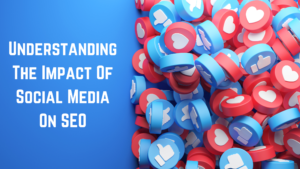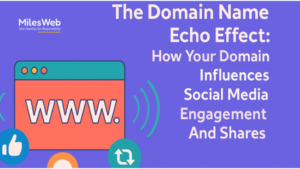Also Read:
- Why Is Digital Marketing Required In Export Import Business
- How Businesses Can Create Omnichannel Customer Experiences
- Preparing For The Future: Trends That Will Shape Digital Marketing In India
For decades, the sales funnel has dominated marketing conversations. It’s been the go-to framework for guiding potential customers from awareness to purchase. But in recent years, there’s been a shift — one that puts customer experience and retention at the center. This shift is embodied in the sales wheel, often called the flywheel.
So, what’s the difference between the two? And more importantly, which one should your business be using?
Let’s dive in.
📉 What Is The Sales Funnel?
The sales funnel is a linear model that visualizes the buyer’s journey in stages:
- Top of the Funnel (TOFU): Awareness & Discovery
- Middle of the Funnel (MOFU): Interest & Consideration
- Bottom of the Funnel (BOFU): Decision & Purchase
The funnel is shaped like a triangle because not all leads become customers. People drop off at every stage. The goal is to optimize the journey to maximize conversions at the bottom.
✅ Pros Of The Sales Funnel:
- Simple and easy to understand
- Great for businesses focused solely on lead acquisition
- Helps structure content and campaign efforts per stage
❌ Limitations:
- Ends at the sale — ignores post-purchase engagement
- Doesn’t leverage existing customers for referrals or advocacy
- Focuses more on transactions than relationships
🔁 What Is The Sales Wheel (Flywheel)?
The sales wheel, or flywheel, is a circular model that puts the customer at the center of your marketing, sales, and support efforts. It represents a continuous loop of attracting, engaging, and delighting customers — and using their momentum to fuel growth.
🔄 The 3 Core Stages Of A Sales Wheel:
- Attract – Bring in the right audience with helpful content and strategic outreach
- Engage – Build trust, provide value, and offer solutions tailored to their needs
- Delight – Deliver exceptional service and support, turning customers into promoters
✅ Pros Of The Sales Wheel:
- Focuses on long-term customer relationships
- Turns happy customers into growth engines (via word-of-mouth, reviews, referrals)
- Emphasizes the lifetime value of a customer, not just the initial sale
- Promotes internal alignment across marketing, sales, and support
❌ Challenges:
- Requires more time and effort to maintain ongoing relationships
- Can be harder to track and measure using traditional metrics
🆚 Sales Funnel Vs Sales Wheel: Key Differences
| Feature | Sales Funnel | Sales Wheel (Flywheel) |
|---|---|---|
| Shape & Flow | Linear, ends at purchase | Circular, continuous journey |
| Focus | Acquiring new customers | Attracting, retaining & delighting |
| Customer Role | Passive receivers of marketing | Active promoters & brand advocates |
| Growth Dependency | New leads and conversions | Customer experience & referrals |
| Measurement Metrics | Conversion rate, CPL, CPA | LTV, NPS, Customer Retention Rate |
💡 Why The Sales Wheel Is Gaining Popularity
In the era of digital marketing, customer reviews, referrals, social proof, and loyalty play a huge role in business growth. Modern buyers trust peer recommendations more than ads, and businesses that invest in retention consistently outperform those that don’t.
That’s why companies like HubSpot and Amazon have shifted from funnel-thinking to flywheel-thinking, focusing on sustainable growth driven by happy customers.

When To Use Each Model?
Use A Sales Funnel If You:
- Are in the early growth phase
- Have limited products and short sales cycles
- Focus mostly on lead generation & new customer acquisition
Use A Sales Wheel If You:
- Have a loyal customer base and repeat purchase potential
- Want to reduce acquisition costs and boost referrals
- Operate in a service-based, SaaS, or D2C brand with long-term engagement

Frequently Asked Questions (FAQs)
1. What is a sales funnel?
A sales funnel is a step-by-step process that guides potential customers from awareness to purchase.
2. What is a sales wheel?
A sales wheel focuses on customer retention and referrals by creating a continuous loop of engagement.
3. How are they different?
Funnels are linear and end with a sale. Wheels are circular, emphasizing repeat business and loyalty.
4. Which model is better for long-term growth?
The sales wheel is better for sustainable growth as it prioritizes existing customers and brand advocacy.
5. Should I replace my funnel with a wheel?
Not necessarily. You can combine both—use a funnel for acquisition and a wheel for retention and referrals.
6. What businesses benefit most from the sales wheel?
Subscription models, D2C brands, and service-based businesses see strong results with a wheel approach.
7. Is the sales wheel suitable for B2B?
Yes. B2B firms can use it to build long-term client relationships, upsells, and referrals.
Final Thoughts
The sales funnel isn’t dead — but it’s no longer enough on its own. Today’s smartest brands are combining the structure of the funnel with the customer-centric momentum of the wheel.
By doing this, you don’t just win more sales.
You build a brand people love, trust, and recommend.
Ready to transition your business from funnels to flywheels?
👉 Reach out to us at Digitalz Pro Media & Technologies for a free strategy session to build your customer journey for sustainable growth.





